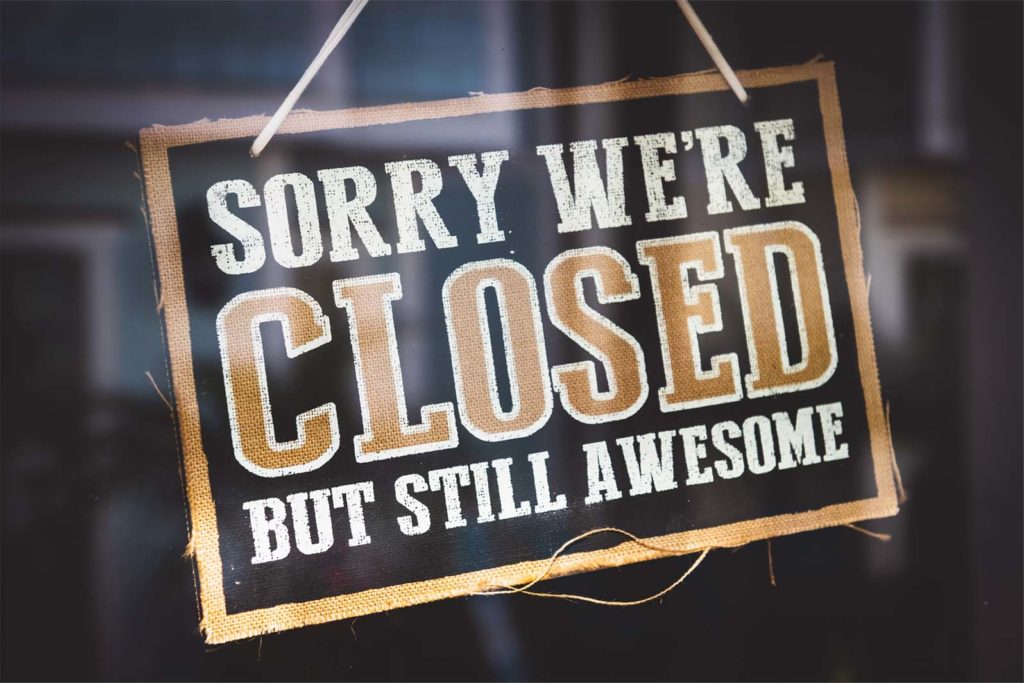1. Stay healthy
Staying healthy should be one of your top priorities. By now you’re likely to be aware of government guidelines on things such as regular handwashing, social distancing and self-isolation. (If you’re not you can read the latest government Coronavirus (COVID-19) guidelines here, which were current at time of publication.)
But although it’s extremely important to take measures to protect yourself and others from the spread of Coronavirus (COVID-19), it’s not the only health issue you need to be aware of.
This is a stressful time for everyone, and small business owners in particular are facing a range of challenges that could have an adverse impact on mental health.
Social distancing and self-isolation may also have a negative impact on your health – both mental and physical.
So what can you do?
Well, earlier in March the World Health Organization (WHO) published a comprehensive document covering mental health considerations during the Coronavirus (COVID-19) outbreak.
More recently, the BBC published an article on how to protect your mental health during the pandemic. (The article uses the WHO document as its foundation, but presents information in a way that’s easier-to-understand.)
The BBC article focuses on staying in touch with loved ones, limiting the time you’re exposed to things that make you feel unhappy or anxious, and staying as physically active as possible under the circumstances.
The BBC also has advice on how to exercise while staying at home.
2. Stay up-to-date on the changing situation
The Coronavirus (COVID-19) pandemic has already caused changes to daily life in the UK, and there are likely to be further changes.
Because of this, it’s important to stay up to date with the government’s response to the situation. So check in with respected news sources and government websites on a regular basis so you understand what’s happening and what may happen soon.
But don’t forget to balance this with the things we looked at in point one – staying in touch with what’s going on is important, but spending hours glued to news coverage that is making you feel sad and stressed will do more harm than good.
3. Identify potential sources of help if you need them
You’ll likely be aware that the government has already announced a range of economic measures aimed at supporting businesses and individuals during the Coronavirus (COVID-19) pandemic.
It’s worth spending some time taking a close look at what help is available for your business should you need it.
That way, if you do need to ask for help you’ll already know who you need to ask and what you need to ask them.
You can find a guide to the government support that has already been announced for businesses, along with other advice for employers and employees, here.
The Small Business Commissionaire may also be able to help you if you are facing problems due to late payments.
The Business Debt Line may be able to help if you’re already facing debt issues, and it has also created a “Coronavirus factsheet” detailing sources of support for businesses affected by the outbreak.
Crowdfunder is also offering 100% free fundraising for businesses, which could provide you with a vital cash injection during this difficult period.
4. Keep in touch with your customers
Although your customers will undoubtedly have many other things on their minds, they will still appreciate being told about any changes to your business that may affect them.
This includes things like changes to opening hours, changes to delivery times, cancellation of appointments or planned works, and running out of stock.
For things that affect an individual customer directly, such as a delivery delay or a cancelled appointment, you should endeavour to contact the customer directly – by phone if possible.
For changes that affect your customer base as a whole, such as changes to opening hours or running out of stock, you should do all you can to contact as many customers as possible.
This includes updating your website with relevant information, emailing your mailing list, and posting on your social media accounts.
Remember to update customers as soon as you can, and to keep updating them as the situation changes.
You also need to make sure that your customers are able to get in touch with you if they need to.
Contact information should be clear on your website, and it should also be up to date.
One area you should pay particular attention to is your telephone numbers(s). If your usual contact number is for a workspace that is currently not in use, because everyone is home working for example, then update the number to one that people can get through on.
Be sure to respond to email queries in as timely a fashion as you can. If you’re receiving a substantial number of emails you may wish to prioritize your response so you focus on replying to the most important emails first.
And don’t forget to monitor social media – pay particular attention to any questions or comments that come in reply to any posts you make about your business’s response to the current situation.
5. Keep in touch with your employees
Some of you may have already moved to remote working, for others remote working may not be possible.
Whatever situation you find yourself in, it’s equally important that you keep your employees up to date with both changes to how the business is operating, and the day-to-day workings of the business.
Video conferencing software can help you communicate to several employees at once, making it a good way to pass on important news, and it can also be used to set up one-to-one meetings, making it a good way to stay in touch.
You can find a selection of video conferencing tools here, many of which offer a free package, or a free trial.
6. Support your community
Small businesses are often at the centre of their community, and you can still play a role in supporting your community during the pandemic.
Exactly what you’re able to do will depend on the kind of business you are, the resources at your disposal, and the wider situation in the UK.
For example, a number of supermarkets in the UK have are opening exclusively for older customers, or health care workers during certain periods of the day.
Whatever you do to support your local community, make sure that you don’t put your health, or your employee’s health at risk, and that you’re always following the current government guidelines.
7. Review planned events and communications
You’ve likely already started to look at future events and planned communications, but as the situation continues to evolve you may have to look even further ahead.
If you haven’t already done so, you should strongly consider suspending all scheduled emails and social media posts, as communications planned before the Coronavirus (COVID-19) outbreak may come across as insensitive if they’re sent out during it. You may also wish to plan new communications that reflect the current situation.
You should also review any promotions planned for the near future to ensure they are still relevant.
It’s not possible to predict when things will start to get back to normal in the UK, so it’s hard to judge if an event should be cancelled or postponed.
You may want to operate a “better safe than sorry” policy when it comes to events and cancel them as early as possible.
Such an approach can help ensure you don’t spend time, effort and money planning a future event only to find you have to cancel it at short notice because of government advice.
Don’t forget to tell people about a cancellation as soon as you can.
8. Seek out positives where possible
These are testing times – both in terms of how we live our daily lives and economically.
It may not feel like there are many positives to be found right now.
That’s true.
But that doesn’t mean you should stop looking.
Finding a positive may be something as simple as helping out a neighbour at home, or as complex as launching a project to help your community to cope during the pandemic.
It might be starting a project you didn’t have time to work on until now. It might even be changing what your business does, or starting a totally new business. Because even in tough times there are opportunities for success.
This post by Amy Hoy explains how she started a successful business during the last global recession in 2008, and it may provide the inspiration you need.
Summing up
However you approach the Coronavirus (COVID-19) outbreak, make sure you prioritize your health and the health of the people around you.
Seek out help if you need it, and offer help if you can.
If there’s anything you want to talk to us about then get in touch.





